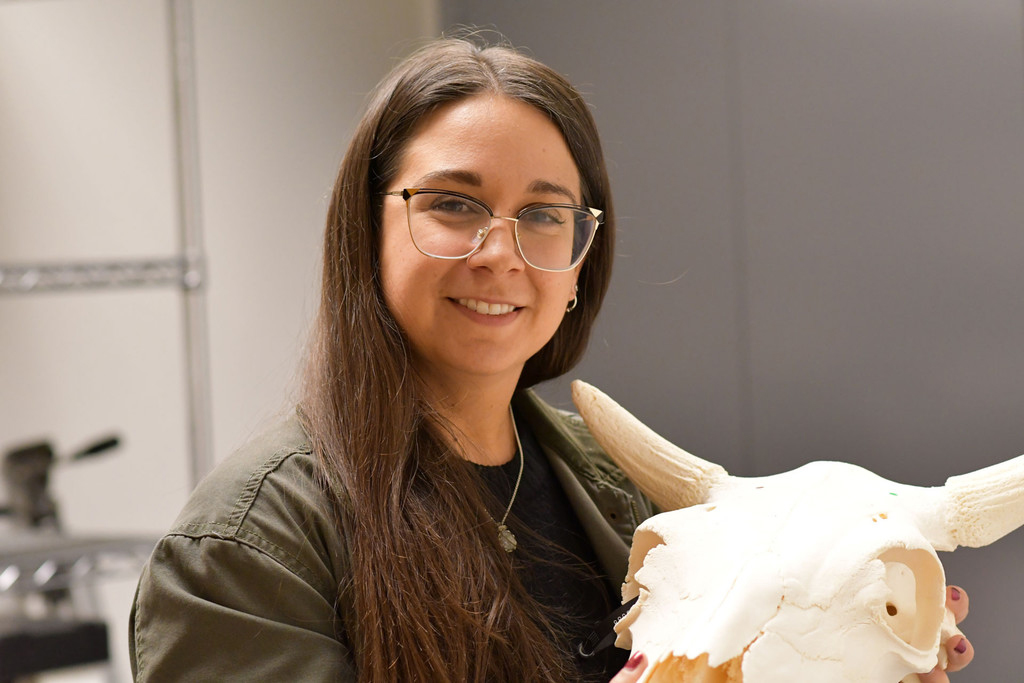A self-proclaimed foodie, Ph.D. candidate Katie Tardio is researching why we eat the foods we eat in order to deepen our cultural understanding of ancient societies and how they evolved over centuries.

With family in Italy, Tardio frequently traveled abroad as a child, where she saw learned firsthand about ancient cultures, experiences from which she developed an interested in classical archeology.
“It’s digging holes, which a lot of people tend to forget. But It’s more hard work than just brushing like in the movies,” she said. “I like to think of it as re-finding people. No one has thought about them in 2,000 years. You’re re-finding things or whole lives that have been forgotten. It’s very humbling.”
Having completed her bachelor’s degree and a post-baccalaureate program in California, she chose to pursue a doctoral degree from the Department of Classics at the University of North Carolina at Chapel Hill, housed in the College of Arts and Sciences.
In the department, her research has largely focused on ancient food economies, food disparities, and reconstructing diets. Specifically, her dissertation focuses on the food preferences and production of a Roman city in Northeastern Spain.
“Through my research, I see those lines of connection between different social classes in the city and the hinterlands surrounding the ancient city of Tarraco. The ways I examine food culture can be used across the Mediterranean to discover nuances in ancient economies and diets.”
As an animal bones specialist, her research has taken her across the Mediterranean, from the Pyrenees to Spain, Turkey and Morocco. An off-campus dissertation completion fellowship from The Graduate School allowed her to live in Spain to conduct research at the Institut Català d’Arqueologica Clàssica. She has also received a dissertation completion fellowship.
Tardio explained that excavation work can lead to a better understanding of ancient villas, housing structures and deepen our cultural understanding.
“Essentially, I dig through peoples’ trash and get at stories that classical authors aren’t telling, or that they’re telling at the periphery.”
Animal bones and pottery, for example, have been found in walls as either core material or patch up walls.
“The smaller things you find are super relatable,” she said. “You sometimes find little toys, or a mug. You can tell because it was put somewhere special.”
Across Europe, her cultural research also pertains to a more nuanced understanding of climate change and how it affected ancient communities.
“We have enough climate data to see when droughts were happening, and you can see the correlation on what had to be done and how they pulled through these situations,” she said. “I think that’s going to be more and more important as our world becomes hotter and hotter.”
During her time as a graduate student, Tardio also participated in The Writing Center’s Dissertation Boot Camp as she plans to graduate in spring 2023.
“Everyone is working on interesting dissertations on wildly different topics than you,” she said. “At Carolina, there’s such cool research taking place.”
By Elizabeth Poindexter, The Graduate School
